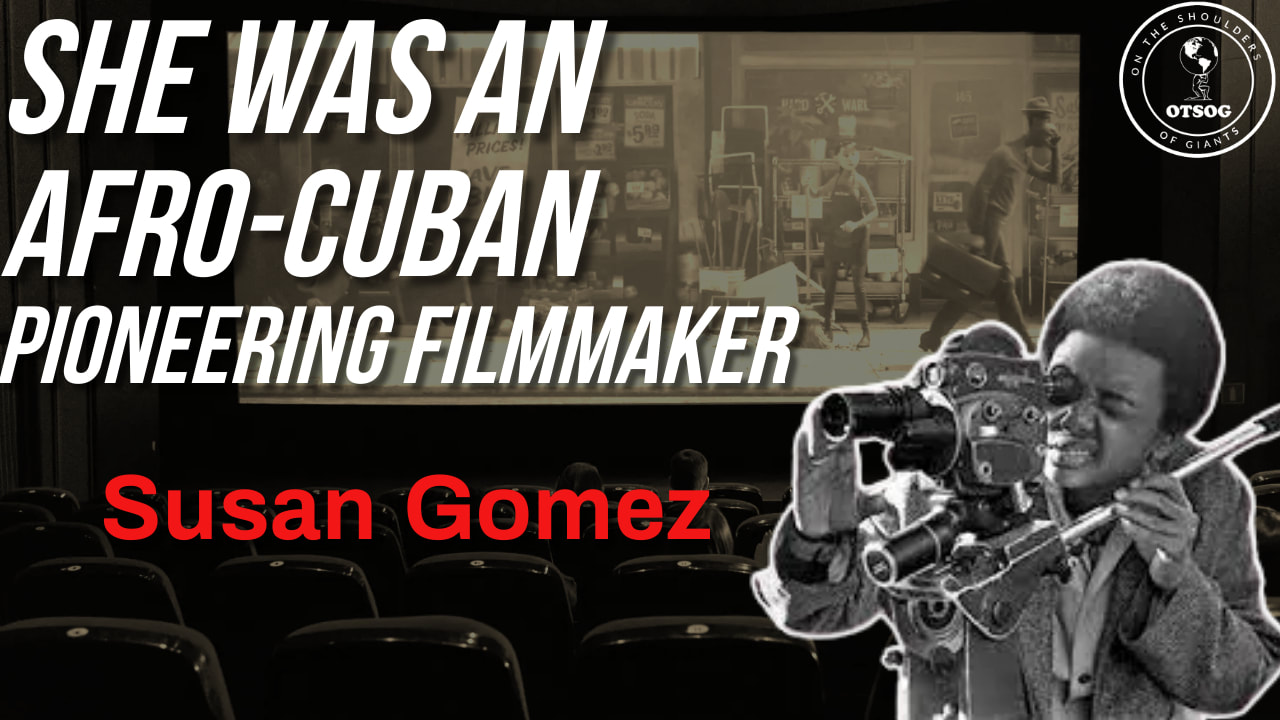|
On November 8, 1942, Sara Gomez was born in the Guanabacoa neighborhood of Havana, Cuba. I do not have any information about her parents, but I do know Sara was raised by her paternal grandmother and four aunts. Sara’s grandmother and aunts prioritized education and exposed her to Afro-Cuban culture, music, art, and literature. She learned to play the piano and was introduced to ethnography after learning about her Afro-Cuban culture. Her neighborhood of Guanabacoa was an Afro-Cuban cultural hub for scholars, musicians, business professionals, artists, dancers, and writers. A few of her family members were professional musicians who performed with the Havana Philharmonic Orchestra. As a young woman, Sara would attend dances held at a location called The Progressive Club. Dancers, musicians, and other young people who attended The Progressive Club inspired Sara to study music at the Havana Conservatory of Music. Sara’s interest and community could not keep her from experiencing racism and gender inequality as an Afro-Cuban woman. As she grew older, she would use her voice and talents to combat the racism and gender inequality in Cuba. Sara gained experience as a writer working for a youth magazine called Mella, she would follow that by becoming a writer for the Communist Party newspaper News of Today. These experiences would lead her to accept a position directing films for the Instituto Cubano Del Arte e Industria Cinematográficos, or the ICAIC. Becoming a film director catapulted Sara Gomez into the Cuban history books, she became the first woman to direct films in Cuban history. An Afro-Cuban woman became a filmmaking pioneer. She began her directing career making documentary films, which helped her to focus more on creating a realistic depiction of the Cuban people and culture. When Sara began working at the ICAIC it was a new organization and she was one of two Afro-Cuban filmmakers in the organization. Until her death, Sara Gomez was the only woman to direct films for the ICAIC. She used her films to highlight the plight Afro-Cuban people faced daily. The messages in her films exposed the racism of Cuba, which was the root cause of all of the disparities the Afro-Cuban people faced. She not only highlighted the issues, but she included ideas to solve their problems. Her films held a mirror to the Government while holding a magnifying glass to the Cuban people's eyes so they could see the root of their issues. Sara was a celebrated filmmaker. She directed 13 short films and 1 feature-length film. She was also the assistant director for 3 films. Her feature-length film One Way Or Another received critical acclaim because it explored racism and gender inequality in Cuba, issues that Sara experienced as a young woman. She married a man named Hector Veitia, the couple produced a daughter. Years later, Sara married a man named Germinal Hernandez and they produced two children. Sara Gomez died on June 2, 1974. She is remembered as a Cuban filmmaking pioneer, who was brave and creative enough to put a lens on the Cuban issues that led to the existence of the revolution. To Cuba’s first woman film director, Sara Gomez, we proudly stand on your shoulders. J.A. Ward Click here to support the OTSOG book series. References: https://aaregistry.org/story/sara-gomez-filmmaker-born/ https://en.wikipedia.org/wiki/Sara_G%C3%B3mez
0 Comments
Leave a Reply. |
Details
Categories
All
Click Here to join our mailing list
|
Contact Us: |
Connect With Us |
Site powered by PIT Web Design


 RSS Feed
RSS Feed



